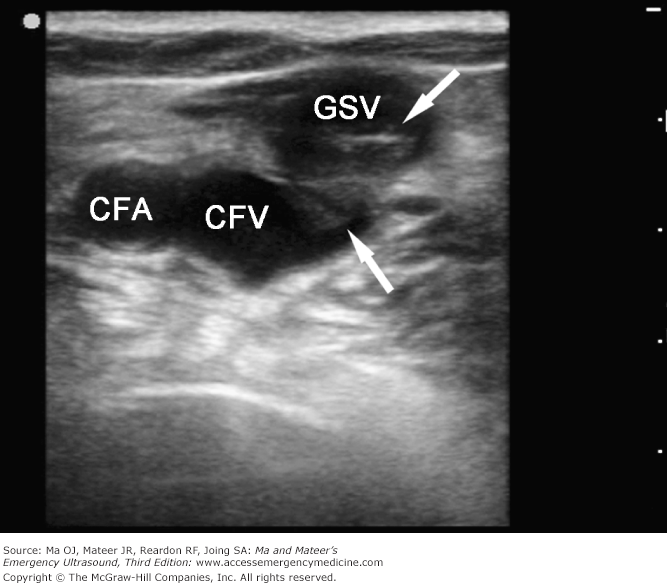You may call them simply doctors or physicians but most of the physicians have extra expertise in one type of the medicine or another. In fact, there are hundreds of medical specialties and subspecialties of physicians to understand for Medical Billers and Coders.
Every medical specialist physician shares a one common goal which is to help patients for treatment or help them stay healthy.
Below you will understand the different types of medical specialties and subspecialties.
ALLERGY AND IMMUNOLOGY
Specialists in allergy and immunology work with both adult and pediatric patients suffering from system disorders such as asthma, eczema, food allergies, insect sting allergies, and some autoimmune diseases. Allergists/Immunologists may help patients suffering from common diseases such as asthma, food and drug allergies, immune deficiencies, and diseases of the lung. Specialists in allergy and immunology can pursue opportunities in research, education, or clinical practice.
Diseases and Conditions:
Asthma, eczema, food allergies, insect sting allergies, and some autoimmune diseases.
ANESTHESIOLOGY
Anesthesiology is the branch of medicine dedicated to pain relief for patients before, during, and after surgery. Anesthesiologists provide treatment services to numb your pain or to put you under during surgery, childbirth, or other procedures.
Diseases and Conditions:
Pain Management during surgery, childbirth, or other procedures.
Learn More: The Ultimate Guide to Pain Management Billing Services and EHR
Subspecialties:
The American Board of Anesthesiology outlines the following subspecialties….
• Critical care medicine
• Hospice and palliative care
• Pain medicine
• Pediatric anesthesiology
• Sleep medicine
CARDIOLOGY
Cardiologists are experts in the heart and blood vessels. You might see them during your hospital stay for heart failure, a heart attack, high blood pressure, or an irregular heartbeat.
Diseases and Conditions:
Heart failure, a heart attack, high blood pressure, or an irregular heartbeat.
DERMATOLOGY
Dermatologists treat adult and pediatric patients with disorders of the skin, hair, nails, and adjacent mucous membranes. They diagnose everything from skin cancer, tumors, inflammatory diseases of the skin, and infectious diseases. They also perform skin biopsies and dermatological surgical procedures.
If you have problems with your skin, hair, nails? Do you have moles, scars, acne, or skin allergies? Dermatologists can help you!
Diseases and Conditions:
Disorders or Allergies of the skin, hair, nails, and adjacent mucous membranes.
Subspecialties:
• Dermatopathology
• Pediatric dermatology
• Procedural dermatology
ENDOCRINOLOGY
Endocrinologists are experts on hormones and metabolism. They can treat conditions like diabetes, thyroid problems, infertility, and calcium and bone disorders.
If you have conditions like diabetes, thyroid problems, infertility, calcium and bone disorders.? Endocrinologists can help you!
Diseases and Conditions:
Diabetes, thyroid problems, infertility, and calcium and bone disorders.
DIAGNOSTIC RADIOLOGY
Medical physicians specializing in diagnostic radiology are trained to diagnose diseases in patients through the use of X-rays, Radioactive substances, sound waves in Ultrasounds, and the body’s natural magnetism using magnetic resonance images (MRI).
Diseases and Conditions:
Diagnosis of diseases in patients.
Also Learn: Imaging Services – Updated MRI CPT Codes 2021
Subspecialties:
• Abdominal radiology
• Breast imaging
• Cardiothoracic radiology
• Cardiovascular radiology
• Chest radiology
• Emergency radiology
• Endovascular surgical neuroradiology
• Gastrointestinal radiology
• Genitourinary radiology
• Head and neck radiology
• Interventional radiology
• Musculoskeletal radiology
• Neuroradiology
• Nuclear radiology
• Pediatric radiology
• Radiation oncology
• Vascular and interventional radiology
EMERGENCY MEDICINE
Emergency Medicine Specialists provide care for adult and pediatric patients in emergency conditions. These specialists make life-or-death decisions for sick and injured people, usually in an emergency room. Their job is to save lives and to avoid or lower the chances of disability. They provide immediate decision making and action to save lives and prevent further life threatening injury. They help patients in the outpatient hospital setting by directing emergency medical technicians and assisting patients once they arrive in the emergency department or emergency rooms.
Diseases and Conditions:
Emergency and life threatening conditions, save lives and to avoid or lower the chances of disability.
Learn More: Medical Billing Consultation Services for Emergency Rooms
Subspecialties:
• Anesthesiology critical care medicine
• Emergency medical services
• Hospice and palliative medicine
• Internal medicine / Critical care medicine
• Medical toxicology
• Pain medicine
• Pediatric emergency medicine
• Sports medicine
• Undersea and hyperbaric medicine
FAMILY MEDICINE
Physicians specialized in Family Medicine, care for the whole family, including children, adults, and the elder ones. They do routine checkups, screening tests, provide flu and immunization shots, manage diabetes and other ongoing medical conditions. In simple words, family medicine focuses on integrated care and treating the patient as a whole. Physicians specialized in family medicine treat patients of all ages. They are well trained to provide comprehensive health care services and treat most of the diseases.
Diseases and Conditions:
Care for the whole family, routine checkups, screening tests, provide flu and immunization shots, manage diabetes and other ongoing medical conditions.
Subspecialties:
• Adolescent medicine
• Geriatric medicine
• Hospice and palliative medicine
• Pain medicine
• Sleep medicine
• Sports medicine
GASTROENTEROLOGY
Gastroenterologists are specialists in digestive organs, including the stomach, bowels, pancreas, liver, and gallbladder. You might see gastroenterologists for abdominal pain, ulcers, diarrhea, jaundice, or cancers in your digestive organs.
They also perform a colonoscopy and other tests for colon cancer.
Diseases and Conditions:
Abdominal pain, ulcers, diarrhea, jaundice, or cancers in your digestive organs.
INTERNAL MEDICINE
Internists or primary care physicians treat both common and complex illnesses, usually they treat diseases of the heart, blood, kidneys, joints, digestive, respiratory, vascular systems of adolescent, adult, and elderly patients. Internists provide long-term and comprehensive care in hospitals or their own clinics. They undergo a comprehensive primary care training on internal medicine, these physicians also address disease prevention, wellness, substance abuse, and mental health.
Diseases and Conditions:
Both common and complex illnesses, i.e. diseases of the heart, blood, kidneys, joints, digestive, respiratory, vascular systems of adolescent, adult, and elderly patients
Subspecialties:
• Advanced heart failure and transplant cardiology
• Cardiovascular disease
• Clinical cardiac electrophysiology
• Critical care medicine
• Endocrinology, diabetes, and metabolism
• Gastroenterology
• Geriatric medicine
• Hematology
• Hematology and oncology
• Infectious disease
• Internal medicine
• Interventional cardiology
• Nephrology
• Oncology
• Pediatric internal medicine
• Pulmonary disease
• Pulmonary disease and critical care medicine
• Rheumatology
• Sleep medicine
• Sports medicine
• Transplant hepatology
NEUROLOGY
Neurology specialists are experts in the nervous system, which includes the brain, spinal cord, and nerves. They treat strokes, brain and spinal tumors, epilepsy, Parkinson’s disease, and Alzheimer’s disease. Neurologists diagnose and treat diseases of the brain, spinal cord, peripheral nerves, muscles, autonomic nervous system, and blood vessels. Neurologists treat patients suffering from strokes, Alzheimer’s disease, seizure disorders, and spinal cord disorders.
Diseases and Conditions:
Diagnose and treat diseases of the brain, strokes, spinal cord, peripheral nerves, muscles, autonomic nervous system, Alzheimer’s disease, and blood vessels.
Subspecialties:
• Brain injury
• Child neurology
• Clinical neurophysiology
• Endovascular surgical neuroradiology
• Hospice and palliative medicine
• Neurodevelopmental disabilities
• Neuromuscular medicine
• Pain medicine
• Sleep medicine
• Vascular neurology
NUCLEAR MEDICINE
Physicians specialized in nuclear medicine are called Nuclear Radiologists or Nuclear Medicine Radiologists. They use radioactive materials to diagnose and treat diseases i.e hyperthyroidism, thyroid cancer, tumors, and bone cancer. They utilize techniques such as scintigraphy to analyze images of the body’s organs to visualize certain diseases.
Nuclear Radiologists may also use radiopharmaceuticals to treat hyperthyroidism, thyroid cancer, tumors, and bone cancer.
Diseases and Conditions:
Diagnose and treat diseases i.e. hyperthyroidism, thyroid cancer, tumors, and bone cancer.
OBSTETRICS AND GYNECOLOGY
They are often called OB/GYNs, these physicians focus on women’s health and reproductive system, i.e. pregnancy and childbirth. They do Pap smears, pelvic exams, and pregnancy checkups. OB/GYNs are trained in both areas. But some of them may focus on women’s reproductive health (gynecologists), and others specialize in caring for pregnant women (obstetricians).
This field of medicine encompasses a wide array of care, including the care of pregnant women, gynecologic care, oncology, surgery, and primary health care for women.
Diseases and Conditions:
Wide array of care, including the care of pregnant women, gynecologic care, oncology, surgery, and primary health care for women.
Subspecialties:
• Female pelvic medicine and reconstructive surgery
• Gynecologic oncology
• Maternal-fetal medicine
• Reproductive endocrinologists and infertility
ONCOLOGY
These physicians are cancer specialists. They provide chemotherapy treatments and often work with radiation oncologists and surgeons to care for patients with cancer.
Diseases and Conditions:
Chemotherapy treatments for patients with cancer.
PATHOLOGY
Physicians specialized in pathology work to diagnose, monitor, and treat diseases using microscopic examination and clinical lab tests. They examine tissues, cells, and body fluids, applying biological, chemical, and physical sciences within the laboratory. They may examine tissues to decide if an organ transplant is needed, or they may examine the blood of a pregnant woman to ensure the health of the fetus.
Diseases and Conditions:
Examine of tissues and blood.
Subspecialties:
• Anatomical pathology
• Blood banking and transfusion medicine
• Chemical pathology
• Clinical pathology
• Cytopathology
• Forensic pathology
• Genetic pathology
• Hematology
• Immunopathology
• Medical microbiology
• Molecular pathology
• Neuropathology
• Pediatric pathology
PEDIATRICS
Pediatricians care for children from birth to adulthood. Some pediatricians specialize in child abuse, or children’s developmental issues. Pediatricians practice preventative medicine and also diagnose common childhood diseases, such as asthma, allergies, and croup.
Pediatricians may work as a primary care pediatrician treating several illness, or narrowing their scope of practice.
Diseases and Conditions:
Diagnose and treat common childhood diseases, such as asthma, allergies, and croup.
Subspecialties:
• Adolescent medicine
• Child abuse pediatrics
• Developmental-behavioral pediatrics
• Neonatal-perinatal medicine
• Pediatric cardiology
• Pediatric critical care medicine
• Pediatric endocrinology
• Pediatric gastroenterology
• Pediatric hematology-oncology
• Pediatric infectious diseases
• Pediatric nephrology
• Pediatric pulmonology
• Pediatric rheumatology
• Pediatric sports medicine
• Pediatric transplant hepatology
PREVENTIVE MEDICINE
Physicians specialized in preventive medicine work to prevent disease by promoting patient health and well-being. Their expertise goes far beyond preventative practices in clinical medicine, covering elements of biostatistics, epidemiology, environmental and occupational medicine, and even the evaluation and management of health services and healthcare organizations.
Diseases and Conditions:
To diagnose and understand the causes of disease and injury in population groups.
Subspecialties:
• Aerospace medicine
• Medical toxicology
• Occupational medicine
• Public health medicine
PSYCHIATRY
Psychiatrists work with people with mental, emotional, or addictive disorders. They can diagnose and treat depression, schizophrenia, substance abuse, anxiety disorders, and sexual and gender identity issues. Some psychiatrists focus on children, adolescents, or the elderly mental condition. Psychiatrists also conduct medical laboratory and psychological tests to diagnose and treat patients.
Diseases and Conditions:
Diagnose and treat depression, schizophrenia, substance abuse, anxiety disorders, and sexual and gender identity issues.
Subspecialties:
• Addiction psychiatry
• Administrative psychiatry
• Child and adolescent psychiatry
• Community psychiatry
• Consultation/liaison psychiatry
• Emergency psychiatry
• Forensic psychiatry
• Geriatric psychiatry
• Mental retardation psychiatry
• Military psychiatry
• Pain medicine
• Psychiatric research
• Psychosomatic medicine
PULMONOLOGY
Physicians specialized in Pulmonology treats problems like lung cancer, pneumonia, asthma, emphysema, and trouble sleeping caused by breathing issues.
SURGERY
Physicians specialized in surgery can choose to become general surgeons or pursue a subspecialty in a specific area of the body, type of patient, or type of surgery.
General Surgeons provide a wide variety of life-saving surgeries, such as appendectomies and splenectomies. They receive a comprehensive training on human anatomy, physiology, intensive care, and wound healing.
General Surgeons can operate on all parts of the body. They can take out tumors, appendices, or gallbladders and repair hernias. Many surgeons have subspecialties, like cancer, hand, or vascular surgery.
Diseases and Conditions:
Life-saving surgeries i.e. Appendectomies and splenectomies. They can take out tumors, appendices, or gallbladders and repair hernias. Many surgeons have subspecialties, like cancer, hand, or vascular surgery.
Subspecialties:
• Colon and rectal surgery
• General surgery
o Surgical critical care
• Gynecologic oncology
• Plastic surgery
o Craniofacial surgery
o Hand surgery
• Neurological surgery
o Endovascular surgical neuroradiology
• Ophthalmic surgery
• Oral and maxillofacial surgery
• Orthopedic surgery
o Adult reconstructive orthopedics
o Foot and ankle orthopedics
o Musculoskeletal oncology
o Orthopedic sports medicine
o Orthopedic surgery of the spine
o Orthopedic trauma
o Pediatric orthopedics
• Otolaryngology
o Pediatric otolaryngology
• Otology neurotology
• Pediatric surgery
o Neonatal
o Prenatal
o Trauma
o Pediatric oncology
• Surgical Intensivists, specializing in critical care patients
• Thoracic Surgery
o Congenital cardiac surgery
o Thoracic surgery-integrated
• Vascular surgery
UROLOGY
Urologists cares for the male and female urinary tract, including kidneys, ureters, bladder, and urethra. They can treat male infertility and do prostate exams. Urologists also have knowledge of surgery, internal medicine, pediatrics, gynecology, and more.
Diseases and Conditions:
Male and female urinary tract, including kidneys, ureters, bladder, and urethra. They can treat male infertility and do prostate exams
Subspecialties:
• Pediatric urology
• Urologic oncology
• Renal transplant
• Male infertility
• Calculi
• Female urology
• Neurology
Learn More About:
CPT Category Codes by Specialty 2021
Updated List of CPT and HCPCS Modifiers 2021 & 2022
Complete List of Place Of Service Codes (POS) for Professional Claims
Revenue Codes for Hospitals, Emergency Rooms and Facilities with UB04 Billing 2021
We provide Personalized Medical Billing Consultation and project management services to…..
- Acute Care Micro Hospitals
- Freestanding Emergency Rooms
- Urgent Care Centers
- Physician Clinics
- Solo Practioners & Physicians
Feel free to contact us at rcmexpertz@gmail.com









